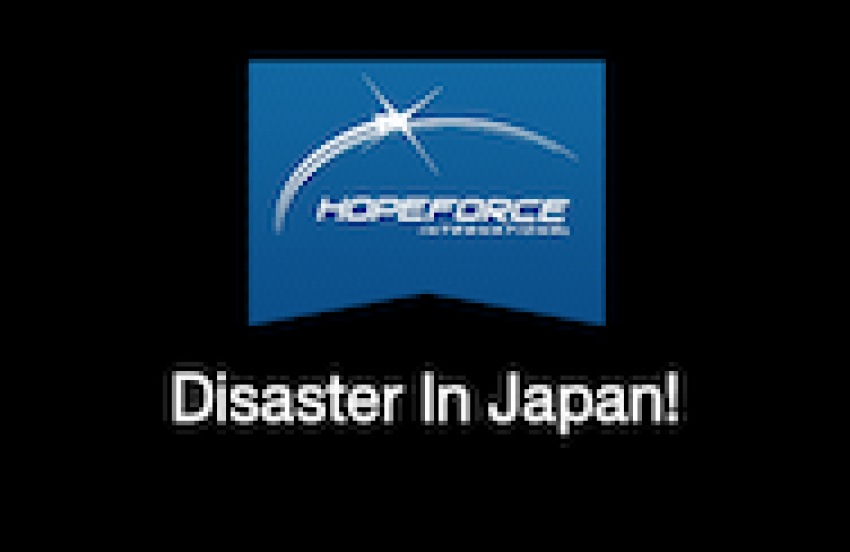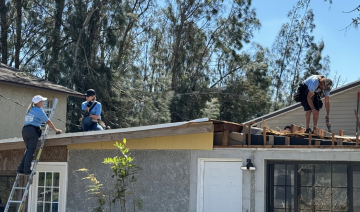
Disaster in Japan!
March 16, 2011
In the wake of the horrific earthquake & subsequent tsunami in Japan, Hope Force International remains committed to our mission of alleviating suffering caused by disasters and chronic human need through stimulating the global Christian community into compassionate action. HFI is standing ready and able to assist, while collaborating with partner agencies to determine the most effective means of responding to the disaster.
"Since the earthquake and tsunami, we have had on-going contact with our ministry partners to assess the need for relief," explains Christine Thompson, Director of Medical Outreach. "We have our medical Strike Team on standby, ready to go as soon as the doors open for us to respond in the crisis zone. All of us are on hold due to the current nuclear safety issues in Japan. There have been three large explosions at the Fukushima nuclear plant, which was badly damaged by Friday's earthquake and tidal wave, over the past few days. This has resulted in a release of dangerous levels of radiation. Some of the plant's fuel rods have already undergone partial meltdowns and the crucial primary containment vessel protecting the core appears to have been breached."
"Yesterday, the nuclear disaster risk level was upgraded to a six on the seven-point international scale for nuclear accidents," Christine continues. "This ranks the accident worse than Three Mile Island and second only to Chernobyl. Obviously, we cannot send a team into the area until the current risk has been assessed and it is safe to deploy."
Hope Force is diligently working with agency partners to coordinate response efforts. A Christian Disaster Relief Organization in Japan has been identified that is setting up a central Command Center and calling up resources as needed. HFI is prepared and willing to support this organization. According to Christine, "As is often the case with disaster relief, aid comes in waves! We have to be prepared for when and if the Lord opens the door for us to go. From a medical response perspective, the situation is still quite chaotic. The Japanese government has yet to determine how much and what kind of medical help is needed due to problems getting access to the scene. Most of the roads are destroyed, the trains are not running, and helicopters are needed to get to the most critically injured. Ironically, it is these areas that are most impacted by the nuclear radiation."





